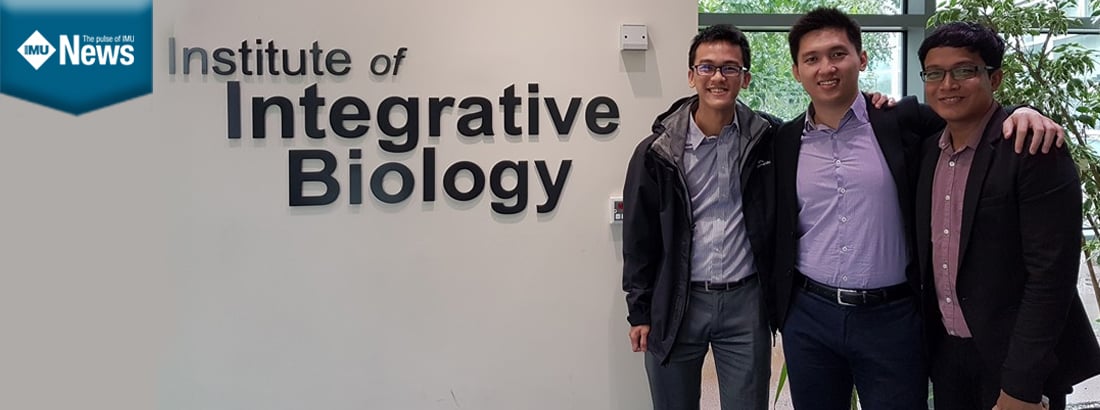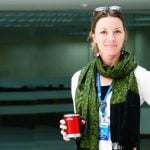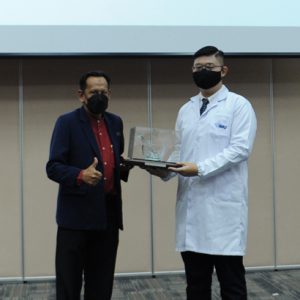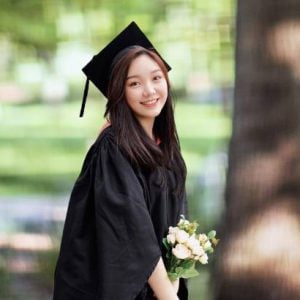Pharmacists in Malaysia provide extended healthcare roles, beyond dispensing medication and supplying medication. Pharmacists are actively involved in research and development as well as pushing the scientific boundaries, for the provision of a better healthcare service. Dr Mai Chun Wai, an alumnus of International Medical University‘s Bachelor of Pharmacy (Hons) and Doctor of Philosophy, is one of the pharmacists who is passionate in drug discovery. 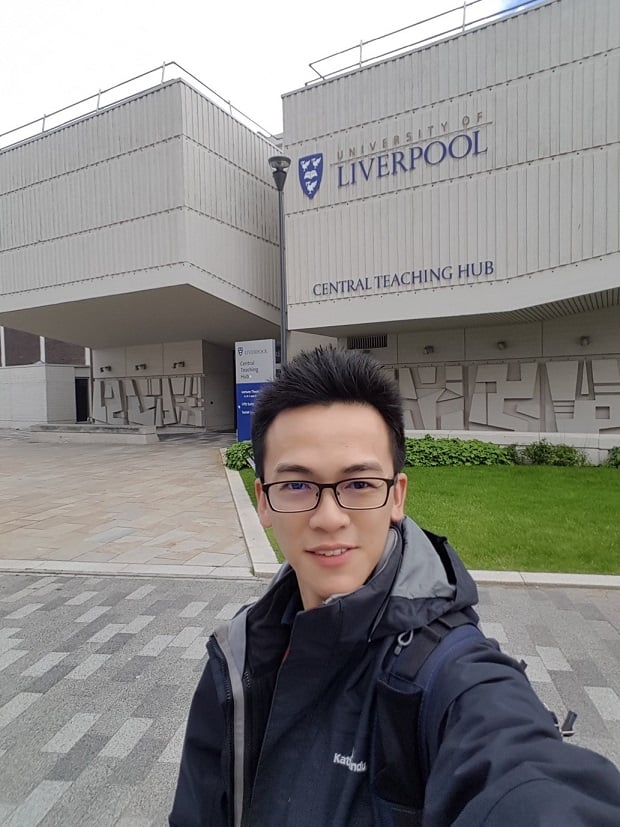 Dr Mai Chun Wai, was recently sponsored to attend the Southeast Asia-European Union Network II (SEA-EU-NET II), an international antimicrobial resistance surveillance training at Liverpool (United Kingdom) and Bangkok (Thailand). Dr Mai was the only selected Malaysian, together with other distinguished Asian delegates from Singapore, Japan, Thailand, Vietnam, and Nepal. There were also six selected delegates from United Kingdom, Switzerland, Spain, Germany, and Netherlands.
Dr Mai Chun Wai, was recently sponsored to attend the Southeast Asia-European Union Network II (SEA-EU-NET II), an international antimicrobial resistance surveillance training at Liverpool (United Kingdom) and Bangkok (Thailand). Dr Mai was the only selected Malaysian, together with other distinguished Asian delegates from Singapore, Japan, Thailand, Vietnam, and Nepal. There were also six selected delegates from United Kingdom, Switzerland, Spain, Germany, and Netherlands. 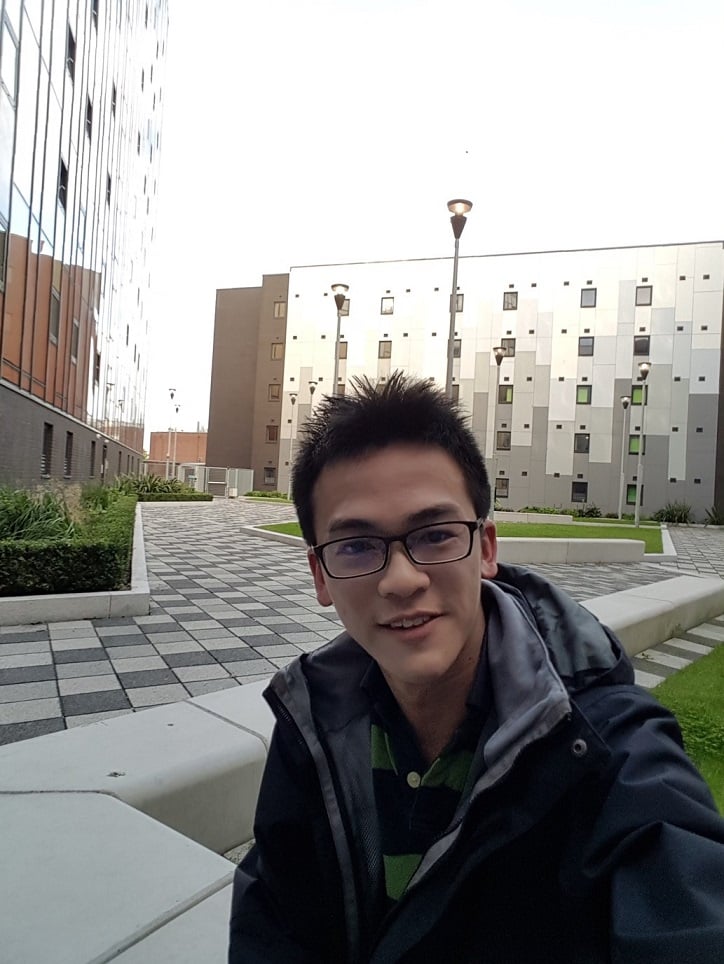 SEA-EU-NET II was coordinated by British High Commission (Singapore) and sponsored by European Commission under the 7th Framework Programme as a joint effort to tackle societal challenges. This project served as a platform for all stakeholders across governments, funders, practitioners, and industrial to ensure an integrated approach in developing sustainable science, technology, and collaboration to combat antimicrobial resistance. The programme was also part of World Health Organization’s One Health Surveillance initiative. The programme was led by Prof Nicola J Williams (University of Liverpool, United Kingdom), A/Prof Rungtip Chuanchuen (Chulalongkorn University, Thailand), and A/Prof Walasinee Moonarmart (Mahidol University, Thailand). The delegates completed their first part of the training at Liverpool University, United Kingdom from 11 to15 July 2016 and will continue the training at Chulalongkorn University and Mahidol University at Bangkok from 1 to 5 August 2016). The training at Liverpool was very fruitful and productive to all delegates because the organiser had invited many eminent speakers to facilitate networking and discussion with regional stakeholders on current challenges and strategies related to antimicrobial resistance.
SEA-EU-NET II was coordinated by British High Commission (Singapore) and sponsored by European Commission under the 7th Framework Programme as a joint effort to tackle societal challenges. This project served as a platform for all stakeholders across governments, funders, practitioners, and industrial to ensure an integrated approach in developing sustainable science, technology, and collaboration to combat antimicrobial resistance. The programme was also part of World Health Organization’s One Health Surveillance initiative. The programme was led by Prof Nicola J Williams (University of Liverpool, United Kingdom), A/Prof Rungtip Chuanchuen (Chulalongkorn University, Thailand), and A/Prof Walasinee Moonarmart (Mahidol University, Thailand). The delegates completed their first part of the training at Liverpool University, United Kingdom from 11 to15 July 2016 and will continue the training at Chulalongkorn University and Mahidol University at Bangkok from 1 to 5 August 2016). The training at Liverpool was very fruitful and productive to all delegates because the organiser had invited many eminent speakers to facilitate networking and discussion with regional stakeholders on current challenges and strategies related to antimicrobial resistance. 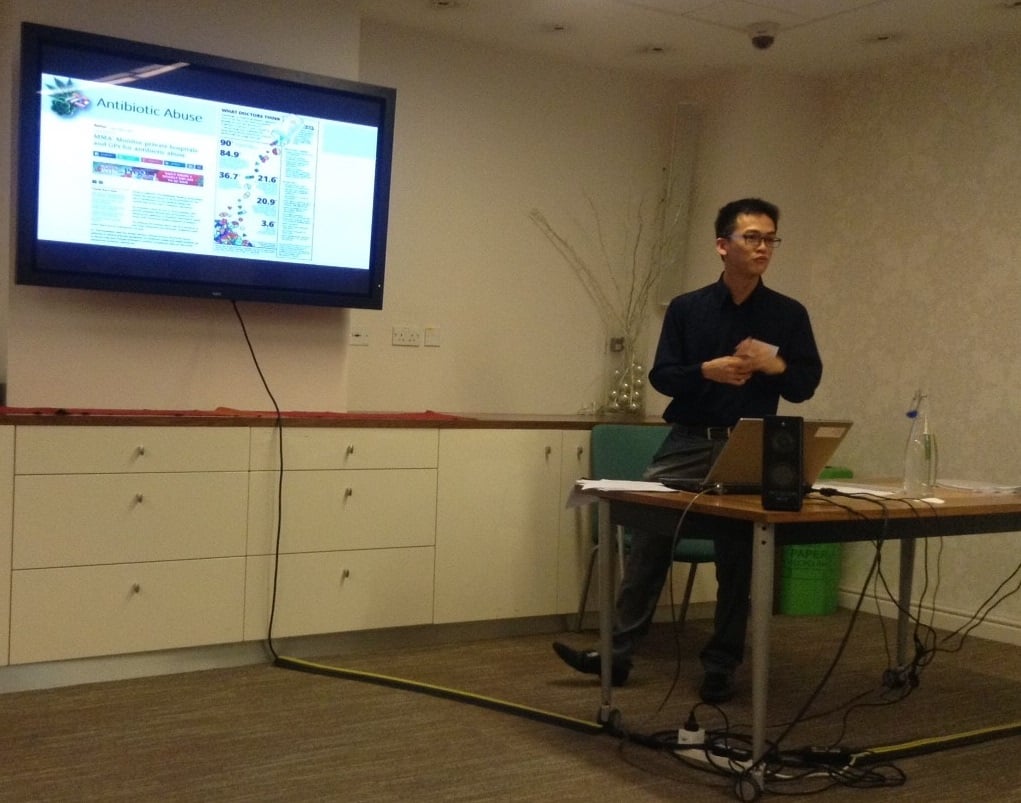 Dr Mai added, “It is inspiring to learn that developed countries have such systematic health system for their public. There are definitely many room for improvements in our country, (Malaysia)’s health system.” We had Prof Nicola J Williams and Prof Malcolm Bennett (University of Nottingham), Dr Barry McMahon (University College of Dublin) and Prof Seamus Fanning (University College of Dublin) to share about the impacts and strategies of One Health; while Prof Jim Scudamore (University of Liverpool and former Chief Veterinary Officer of United Kingdom) to share about UK’s health surveillance. The trainings also covered qualitative research in improving our health system. This was highlighted by Dr Helen Clough (University of Liverpool) in risk assessment; Dr. Gina Pinchbeck and Dr Rob Christley (University of Liverpool) in qualitative and sociology of antimicrobial resistance. The trainings covered the application of cutting edge surveillance technology and research activities by national and regional laboratories. Prof Peter Silley (University of Bradford), one of the panel members in Clinical & Laboratory Standards Institute (CLSI) United States, shared about technical specification in laboratory setting for testing. The delegates were also introduced to cutting edge technology by Prof Mark Fielder (University of Kingston) and Dr Alan Darby, Dr Mathew Ellington (Public Health England) and Dr Kate Baker (University of Liverpool). The delegates also had the opportunity to visit the Next-Generation Sequencing Laboratory in Institute of Integrative Biology, University of Liverpool.
Dr Mai added, “It is inspiring to learn that developed countries have such systematic health system for their public. There are definitely many room for improvements in our country, (Malaysia)’s health system.” We had Prof Nicola J Williams and Prof Malcolm Bennett (University of Nottingham), Dr Barry McMahon (University College of Dublin) and Prof Seamus Fanning (University College of Dublin) to share about the impacts and strategies of One Health; while Prof Jim Scudamore (University of Liverpool and former Chief Veterinary Officer of United Kingdom) to share about UK’s health surveillance. The trainings also covered qualitative research in improving our health system. This was highlighted by Dr Helen Clough (University of Liverpool) in risk assessment; Dr. Gina Pinchbeck and Dr Rob Christley (University of Liverpool) in qualitative and sociology of antimicrobial resistance. The trainings covered the application of cutting edge surveillance technology and research activities by national and regional laboratories. Prof Peter Silley (University of Bradford), one of the panel members in Clinical & Laboratory Standards Institute (CLSI) United States, shared about technical specification in laboratory setting for testing. The delegates were also introduced to cutting edge technology by Prof Mark Fielder (University of Kingston) and Dr Alan Darby, Dr Mathew Ellington (Public Health England) and Dr Kate Baker (University of Liverpool). The delegates also had the opportunity to visit the Next-Generation Sequencing Laboratory in Institute of Integrative Biology, University of Liverpool. 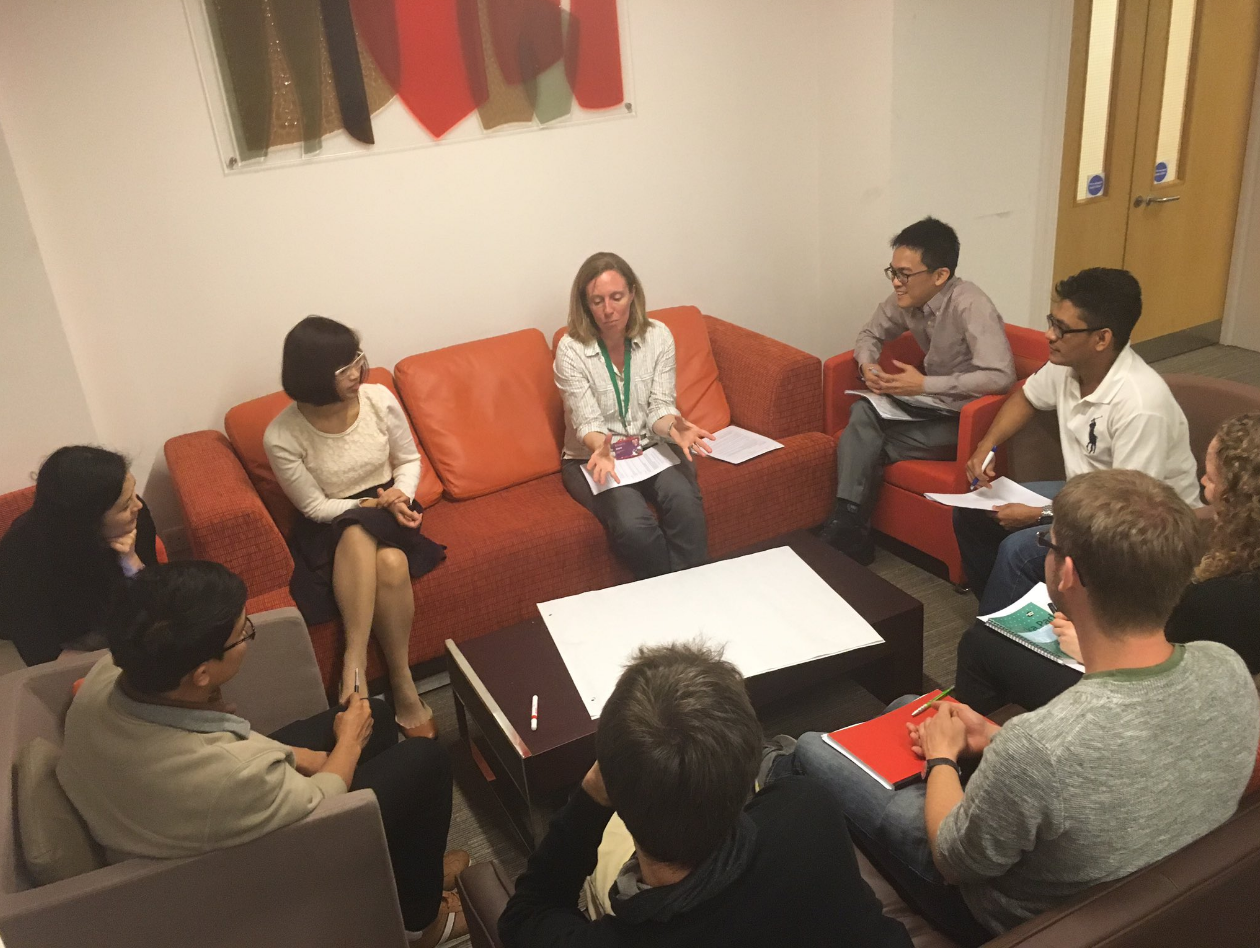
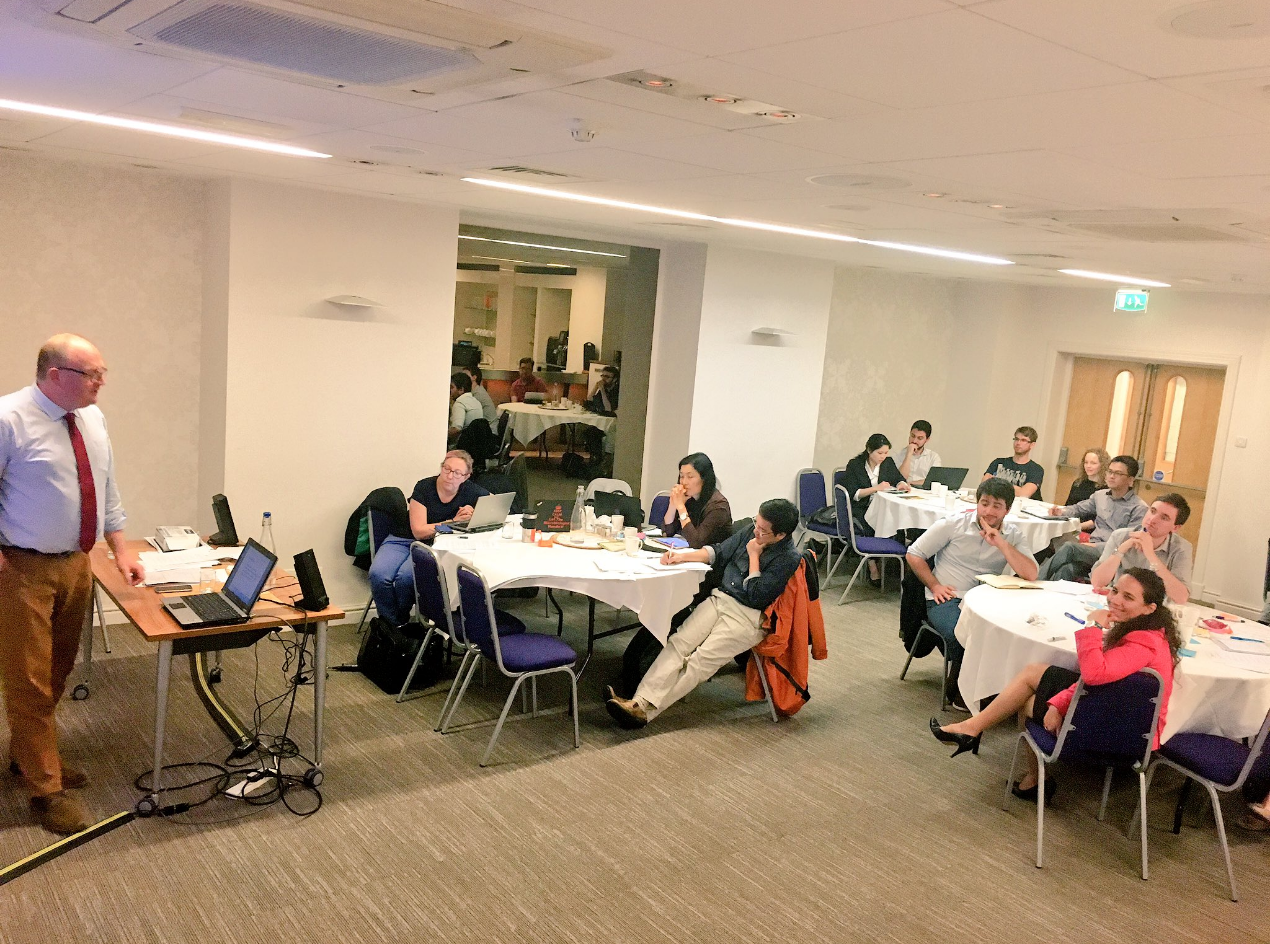 Dr Mai commented that “The critical thinking training in IMU BPharm curriculum has been instrumental and useful to my current research activities. BPharm curriculum has not only provided the knowledge needed for all competent pharmacists, the curriculum also stresses on competency development. I am grateful to my university and lecturers who have molded me into who I am today. The 4-year BPharm programme has always stressed the importance of continual development in pharmacists, so that all pharmacists will be not just a qualified but a competent pharmacist who will safeguard the health of the public.”
Dr Mai commented that “The critical thinking training in IMU BPharm curriculum has been instrumental and useful to my current research activities. BPharm curriculum has not only provided the knowledge needed for all competent pharmacists, the curriculum also stresses on competency development. I am grateful to my university and lecturers who have molded me into who I am today. The 4-year BPharm programme has always stressed the importance of continual development in pharmacists, so that all pharmacists will be not just a qualified but a competent pharmacist who will safeguard the health of the public.” 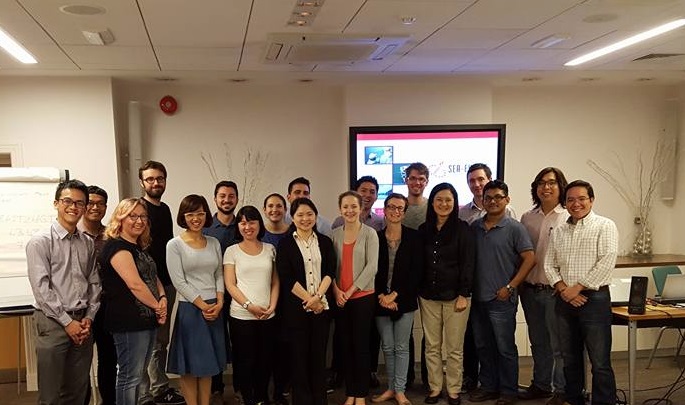
“My research training with IMU is one of the building blocks to this award. The research culture, support and guidance from senior researchers in IMU has supported all researchers to produce impactful research outcomes. It would not have been possible for me to receive this award if I have been working elsewhere.”




